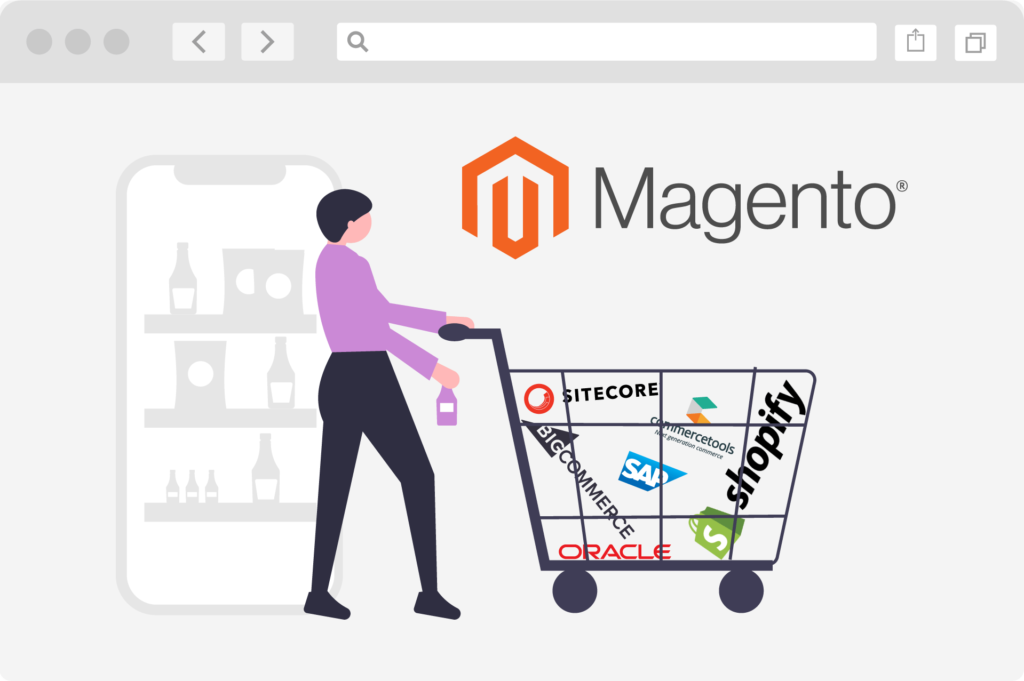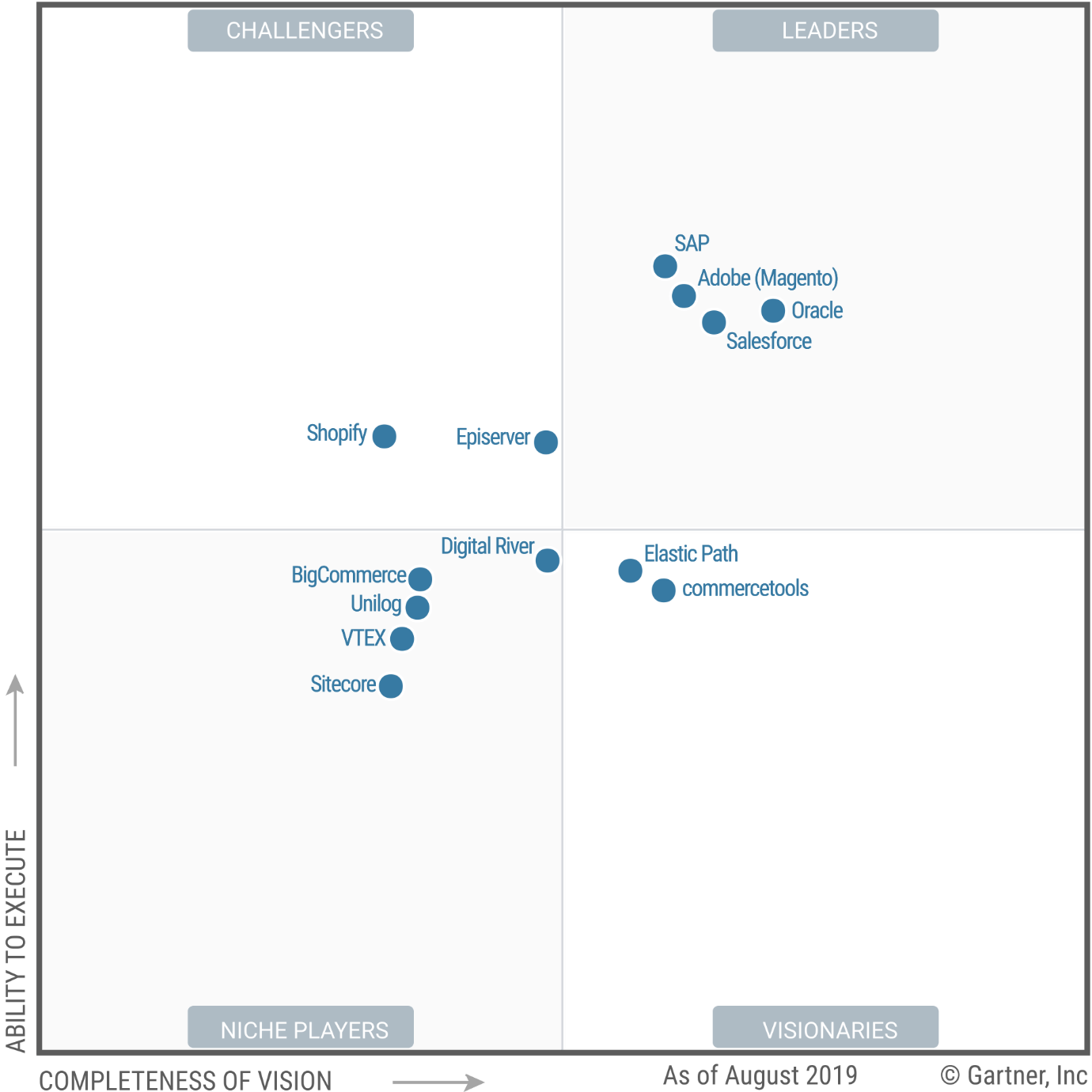
Magento reigns among eCommerce platforms for the third year in a row. The platform took 1st place in the Leaders 2019 category of the Magic Quadrant for Digital Commerce Platforms report

What did the Gartner report judge?
The list includes 13 eCommerce platforms. Next to Magento were, among others Shopify, SAP, Salesforce, BigCommerce or Oracle. The software competed in four categories:
- Challengers – focusing on fewer industries, geographical areas and methods of implementing technologies and business models. They invest in key innovations for their target markets.
- Leaders – they often hang the bar on the competition, providing a wide range of services and commercial functionalities.
- Niche Players – deal with a narrow range of the market determined by industry, GMV digital commerce, company size, region and technological opportunities. They provide cost-effective solutions for smaller end-user companies and emerging markets.
- Visionaries – they are most responsible for integrating innovation and new technologies into their platforms. They also use creative pricing strategies most actively. These are suppliers who have created an invaluable niche on the market and most often attract new customers.
Gartner specialists focused mainly on how individual platforms focus on transformation technologies and how far they help salespeople achieve their business goals.
In the Leaders 2019 category, the most important were:
- dynamics of increase in the number of users of a given platform,
- financial situation of these users,
- extensive commercial functionality for B2B and B2C,
- innovative solutions in the field of electronic commerce for various business models and niches.
Magento is an eCommerce leader
Magento passed the exam at all levels. In addition, it did great in the demanding Innovation standard. According to the Gartner report, Magento leads the way in providing:
- a wide range of commercial functions, including B2C and B2B,
- extensive commercial opportunities in many industries and business models,
- scalability to support large transaction volumes and high level of GMW revenues from digital commerce,
- supporting sales and services directly and through the ecosystem of applications, services and integration partners,
- additional application functions that can be integrated with the basic trading platform,
- technology updates in trading platforms,
- access to new products and their functions,
- investment opportunities inside and outside the major digital eCommerce platforms,
- creating dedicated programs and modules that help clients achieve their business goals.
Success thanks to Adobe Commerce Cloud
One of the strongest sides of Magento Commerce turned out to be the Adobe Commerce Cloud service – an automated platform that supports the technologies PHP, MySQL, Redis, RabbitMQ and Elasticsearch. It deeply integrates with Adobe Analytics Cloud, Adobe Marketing Cloud and Adobe Advertising Cloud and was created to adapt this software to every type and business model (B2B, B2C and B2E).
The solutions implemented in ACC enable users to integrate and easily operate many online stores around the world. They also allow you to personalise products, services or advertising depending on the region or culture.
This means that users staying on the store’s website at the same time, but in other locations, for example, see a completely different set of products and ads. In addition, thanks to the architecture adapted to many websites, Adobe Commerce Cloud enables the design of stores on a global scale without configuration changes.
Brands such as HP Inc., AB InBev, Watsco and Easy Spirit are successfully using ACC solutions. Thanks to them, they communicate better with clients around the world, providing them with the best possible service tailored to their individual needs on each channel.
Check the Gartner Inc. full report.